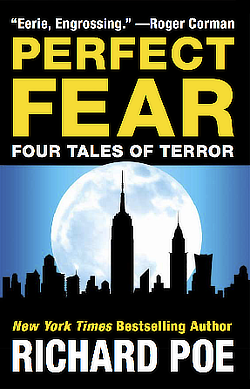One Volk! One Reich! One Euro!
|
by Richard Poe Friday, July 12, 2002 12:00 am Eastern Time |
Archives 1 Comment |
|
Terror by Land and Sea: My Greek Vacation, July 5, 2002 One Volk! One Reich! One Euro!, July 12, 2002 Greece: The Cradle of Conservatism, July 19, 2002 Bill Clinton’s Secret Trip to Greece, July 26, 2002 |
HERE IN Greece, a writer’s thoughts turn to antiquity. The past is everywhere, not only in the ruins of ancient temples, but in the road signs, billboards and Kelloggs cereal boxes spelled out in Greece’s unique and beautiful 3,000-year-old alphabet. The social engineers of the European Union have not yet gotten around to eliminating this stubborn remnant of Greek identity, but give them time. As Hitler might have put it: One Volk! One Reich! One alphabet!
Already, the Euro-commissars have persuaded Greece to abandon the drachma — the world’s oldest living currency, used in the time of Pericles — in favor of the euro, a soulless thing, whose cheap, play-money look evokes the Soviet-era ruble.
The euro’s dull design exemplifies modernist corruption. As Tom Wolfe chronicles in From Bauhaus to Our House, modernism long ago filled our cities with bland, glass-and-steel towers — the legacy of Bauhaus architects, whose Marxist dogma condemned ornamentation, on the grounds that columns, pediments, cornices and sculpture might remind us of kingly palaces and other forbidden, aristocratic splendors.
Having vandalized urban skylines, modernists now turn their attention to money. European banknotes were once masterpieces of the engraver’s art, adorned with the proud faces of kings and warriors, bedecked with scrollwork, filigree, coats-of-arms and other symbols of majesty.
But today’s euro, like Muslim art, is devoid of human faces — not to avoid idolatry, but rather to avoid glorifying dead white males who founded nations, led armies and did other naughty things that today’s sensitive Euro-males are discouraged from doing.
Euro banknotes sport a minimalist look — a map of Europe in silhouette; lifeless etchings of architectural landmarks. The euro’s blandness is deliberate. Powerful words or images that stir patriotic feelings in one member nation might offend some other member. Better to arouse no emotions at all. And indeed, the euro stirs no feelings in the human breast, other than the creepy sensation that one is having one’s pocket picked.
When I last visited Greece, in 1999, drachmas traded at 340 to the dollar. You could put a smile on a bellhop’s face with a 100-drachma tip (29 cents) or treat your wife to an elegant dinner for 5,000 drachmas ($14.70).
Greece was a paradise then — a nation with First-World amenities at Third-World prices. Foreign tourists came in droves. Bare-breasted Scandinavian women thronged the beaches. Here on our secret island, trilingual signs in some store windows beckoned in Greek, English and Swedish alike.
But the foreigners are scarce this year. The blond beauties from the north have fled to Turkey, where the hyper-inflated Turkish lira still offers bargains.
Night after night, the sidewalk restaurants along the paraleia — the waterfront — are nearly empty. The beach is desolate, except for weekend day-trippers from Athens.
With the euro trading at one to the dollar, local merchants are giddy at the prospect of charging New York prices — but seem oblivious to the dangers of overpricing. In fact, euro-mania has cost Greece one of its chief attractions; affordability.
An airport limo driver offered to take me to Athens for 90 euros ($90) — twice the cost of a cab ride from JFK to Manhattan. Dinner for two now costs $35 here on the island — comparable to the price back home in Queens. Last weekend, one of my in-laws, newly arrived from New York, gasped in horror when a small bottle of sun-tan lotion set him back 14.50 euros ($14.50).
Not content with scuttling the Greek economy, the Euro-commissars are also plotting to annihilate Greek culture. The word “euro” currently appears on banknotes throughout Europe both in Greek and Latin script. Such alphabetic diversity cannot long endure — especially since the EU will almost certainly end up absorbing not only Slavic nations with Cyrillic alphabets, but also Caucasian states such as Georgia and Armenia, each with its own ancient alphabet. The Euro-commissars will surely demand a common standard.
When I raised this issue with a Greek friend, he said that the process of language unification had already begun. Techno-globalists are already complaining that Greek script hampers computer use. And, last year, EU Commissioner Anna Diamantopolou urged her home state of Greece to adopt English as a second official language.
Don’t expect many dissenters to speak out against Euro-assimilation. Parliamentary candidate Pim Fortuyn tried that in Holland. He was gunned down by a so-called “animal rights activist” who had somehow managed to acquire the precision shooting skills of a trained assassin.
Thus Europe bows to its new masters, guarded this time not by SS battalions or Roman legions, but by tree-huggers with guns.
Cross-posted from NewsMax.com 07.12.02
|
Terror by Land and Sea: My Greek Vacation, July 5, 2002 One Volk! One Reich! One Euro!, July 12, 2002 Greece: The Cradle of Conservatism, July 19, 2002 Bill Clinton’s Secret Trip to Greece, July 26, 2002 |








See reader comments at FreeRepublic.com:
Posted on 07/11/2002 10:06:17 AM PDT